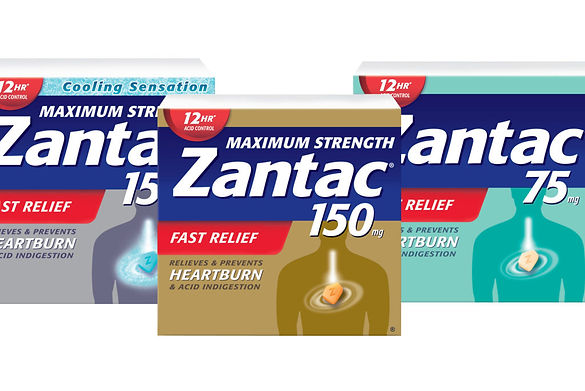ZANTAC
“Zantac” is just the brand name of a popular heartburn drug called ranitidine . So we will just use the name Zantac to loosely refer to all ranitidine products. Zantac can be prescribed by a doctor or purchased over-the-counter, for different digestive issues. Zantac is produced by a bunch of drug companies you know (Pfizer, GlaxoSmithKline, Sanofi, Boehringer, etc.) and a bunch of generic drug manufacturers that you have probably never heard of. You have also likely been told by now that generic drug companies are generally immune to lawsuits (yes and no – but you likely will have to prove that you were not taking generic Zantac only). In addition, you may have been taking combinations of different types of Zantac over several years, and you obviously did not save all of your Zantac receipts. All of this starts to seem complicated, but you have to break it down into more manageable parts.
Based upon recent testing by a popular independent laboratory and a resulting petition filed with the FDA, there are claims that Zantac (ranitidine) causes high levels of Nitrosodimethylamine (NDMA) exposure in patients. Essentially, the claims are that, aside from this testing, recent studies have confirmed that the unstable molecules of the medication break down in the digestive tract to create harmful levels of NDMA (especially if the ranitidine comes into contact with nitrites in the digestive tract). Based upon these claims, significant NDMA exposure could result from taking brand name or generic ranitidine products, regardless of where they were manufactured.
NDMA is listed by the International Agency for Research on Cancer (IARC) as a compound that is probably carcinogenic to humans, and by the US National Toxicology Program (NTP) as a compound reasonably anticipated to be a human carcinogen. In fact, NDMA is actually used in the research laboratory setting to induce cancer in rats.
Similar types of NDMA exposure have been linked to various primary cancers, including:

- Stomach
- Small intestine
- Colorectal
- Esophageal
- Liver
And, in more limited circumstances:
- Prostate (early onset)
- Pancreatic
- Leukemia
- Non-Hodgkin’s Lymphoma
- Multiple Myeloma
Despite these very troubling findings, the FDA had a relatively restrained reaction and suggested that some of the high NDMA levels may have been produced by the testing methods employed (basically saying that the samples were subject to high temperatures during testing that may have caused the ranitidine to break down into NDMA). Many experts sharply disagree with the FDA’s initial position and, indeed, manufacturers and distributors have engaged in massive voluntary recalls and been forced to conduct their own ongoing testing. Further, numerous lawsuits have already been filed across the nation and are set to be consolidated into a Multidistrict Litigation.
Zantac Criteria for Leads
- Not Represented by another attorney for Ranitidine (Zantac)-related claims Ø U.S. Residency and used Ranitidine in the United States Ø No Generics Ø Did not primarily use Ranitidine (Zantac) in or live in Kentucky, Louisiana, Michigan, Tennessee, or Puerto Rico.
- Took Zantac for at least 1 year
- Diagnosed with one of the following cancers 2011 or later :
1. Prostate
2. Under 69
3. Pancreatic
4. Esophageal
5. No throat
6. No Achalasia
7. Stomach
8. No H. Pylori
9. Breast
10. No Family History
11. Liver
12. No Hep B or C
13. Bladder
14. Colorectal
15. Kidney Lung
- No Smokers
- Must not have developed qualifying cancer as a result of non-qualifying cancer Ø Was diagnosed at least 1 year after date of first use of Zantac Ø Must be diagnosed with qualifying injury within 5 years of last taking Zantac Ø Diagnosed with qualifying injury within the last 10 years (2011 or later ) Ø Death cases within last 10 years.
- No death cases from NY, Alabama, Idaho, and Michigan.
